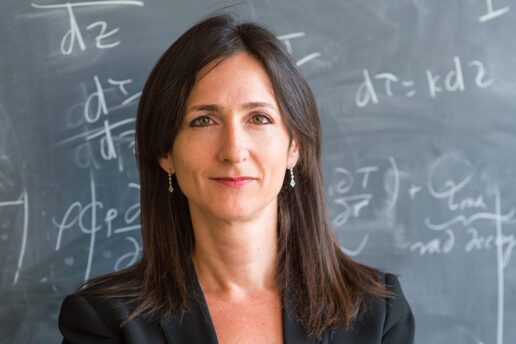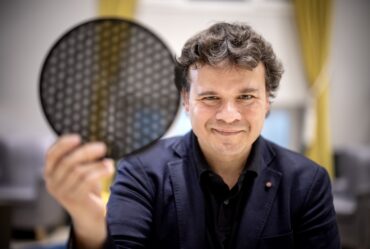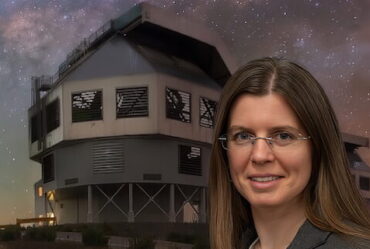
Professor and astrophysicist Sara Seager appointed officer to the Order of Canada
Pioneer in exoplanet research helped transform the burgeoning field into one of the fastest-growing and most exciting in space science.
MIT’s Class of 1941 Professor of Planetary Sciences Sara Seager has been named an officer of the Order of Canada, one of the country’s highest civilian honors. Announced by the governor general of Canada last month, the nomination recognizes Seager “for her multidisciplinary research that has contributed to transforming the study of extrasolar planets into a full-fledged planetary science.”
Raised in Ontario, Canada, Seager holds dual U.S. and Canadian citizenship, as well as academic appointments in MIT’s departments of Earth, Atmospheric and Planetary Sciences; Physics; and Aeronautics and Astronautics. She joins 114 new appointees to the Order of Canada, which include eight companions, 21 officers, one honorary member, and 84 members.
As a planetary scientist and astrophysicist, Seager is at the forefront of exoplanet research. When Seager began her graduate studies at Harvard University in the mid-1990s, extrasolar planetary research was an emerging field, largely based on theory. However, her cutting-edge work on planetary atmospheres, planetary interiors, and exoplanet transits led to numerous firsts for the little-known field and helped to launch it into existence. Her current research uses theoretical models to examine, in detail, exoplanet atmospheres, their internal structure and composition, potential habitable zones, and gaseous signatures indicating life.
Her work on exoplanets, and motivation to find the first Earth-like world, has led her to take leading roles in numerous space science missions, including the MIT-led NASA mission Transiting Exoplanet Survey Satellite (TESS), which launched in April 2018, and the Starshade Rendezvous Mission, a space-based mission concept under technology development for direct imaging discovery and characterization of Earth analogs.
Seager’s work has earned her extensive acclaim, including a MacArthur Fellowship, the Raymond and Beverly Sackler Prize in the Physical Sciences, and election to the American Philosophical Society, the American Academy of Arts and Sciences, and the National Academy of Sciences.
She joins more than 7,000 people, from across all sectors of Canadian society, who have received appointments to the Order of Canada, recognizing “outstanding achievement, dedication to the community and service to the nation.” The incoming class of honorees will be invited to accept the order’s iconic snowflake insignia at a ceremony to be held in the future.


